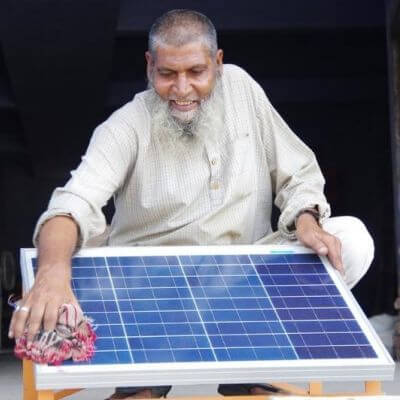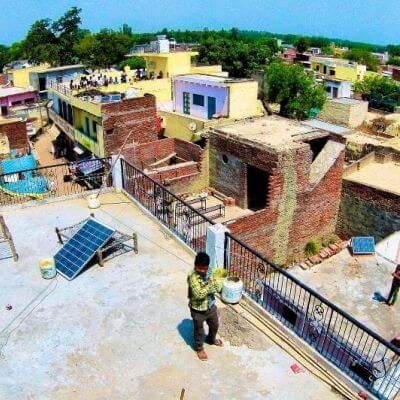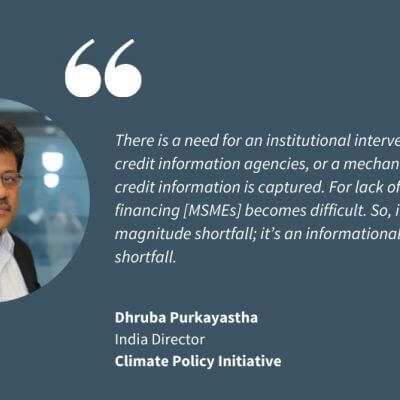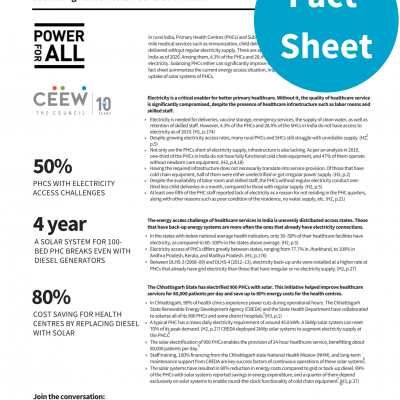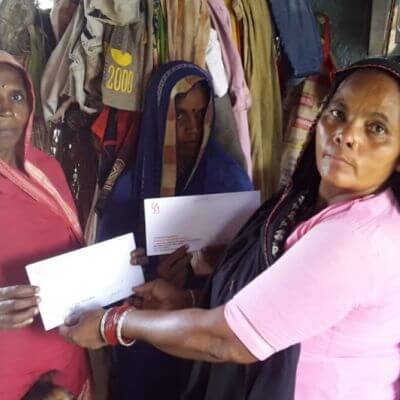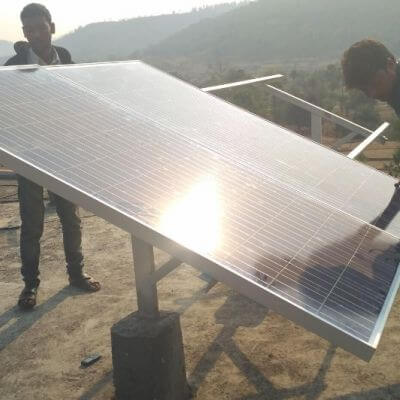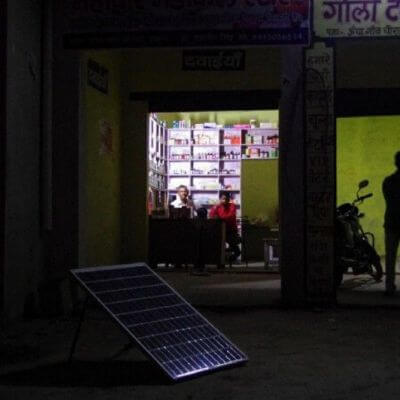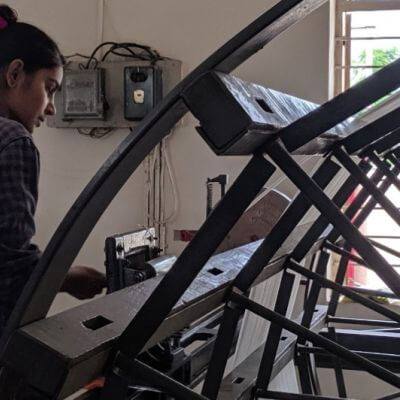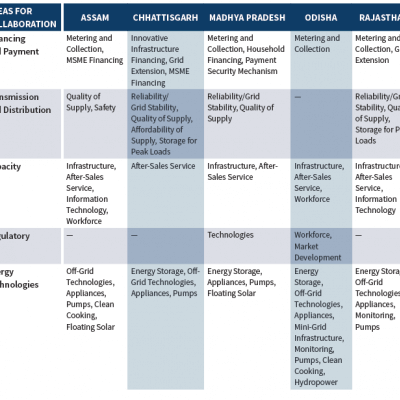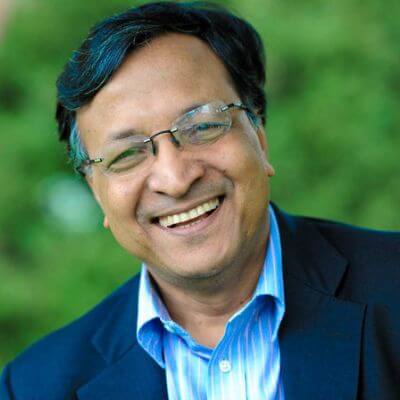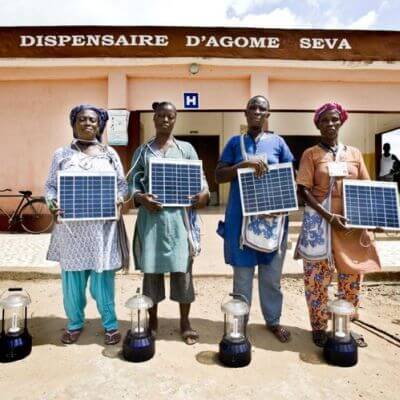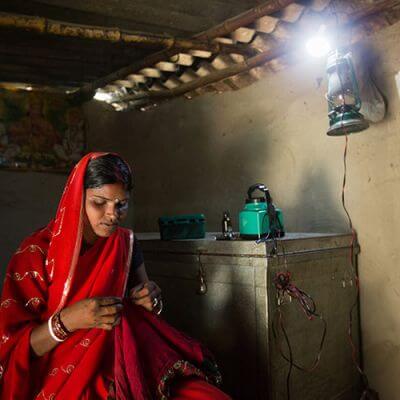All Asia
Unite with APAC Industry Leaders at Reuters Events: Energy Transition Asia Pacific 2022
Energy transition is firmly rooted at the forefront of business and government agendas. After the success of the inaugural event last year, Reuters Events: Energy Transition Asia Pacific returns in 2022, taking place on November 30 – December 1 (Online).
https://www.powerforall.org/news-media/events/unite-apac-industry-leaders-reuters-events-energy-transition-asia-pacific-2022
Ambitious Solar Strategy Puts Jharkhand on Track for a Secure Clean Energy Future
Jharkhand Renewable Energy Development Agency (JREDA) unveiled the "Jharkhand State Solar Policy 2022" on July 5, 2022, outlining its vision to bring solar energy closer to the local communities, businesses, and industries. The policy aims to achieve 4000 MW of solar power capacity across a variety of applications by 2027.
https://www.powerforall.org/insights/asia/ambitious-solar-strategy-puts-jharkhand-track-secure-clean-energy-future
Road to India's Rural Energy Goals Goes Through its Cities
Living in Madhopur Diara village, across the river Ganga, about 15km from Patna, 12-year-old Soni didn't see a light bulb until she turned eight. For years, she walked through the dusty fog trying to find her way to school.
https://www.powerforall.org/insights/asia/road-indias-rural-energy-goals-goes-through-its-cities
Interview with Dhruba Purkayastha: The Future of Distributed Renewable Energy in India
In this episode of the Power for All podcast, Divya Kottadiel speaks with Dhurba Purkayastha, who leads the team at CPI in developing innovative finance and policy solutions in support of the government's renewable energy and green growth plans. He is also the director of US India Clean Energy Finance. The conversation centres around CPI’s recent report on the future of distributed renewable energy in India, which outlines the benefits and market potential of India's DRE sector, examines the current policy and institutional landscape and provides tailored recommendations for various stakeholders.
https://www.powerforall.org/news-media/interviews/interview-dhruba-purkayastha-future-of-distributed-renewable-energy-india
Factsheet: Solarizing Rural Health Centers in India
As of 2019, 4.3% of India’s rural Primary Health Centres (PHCs) did not have access to electricity. While the upfront cost of a solar system is high for most PHCs, displacing diesel generators with a solar system can save 80% of a health centers’ energy costs while bringing many benefits in improved healthcare services.
https://www.powerforall.org/resources/fact-sheets-research-summaries/factsheet-solarizing-rural-health-centers-india
Women's energy entrepreneurship has the potential to address SDGs
SELCO has been working with community women in rural India to be on-the-ground business associates for DRE products.
https://www.powerforall.org/insights/asia/womens-energy-entrepreneurship-has-potential-address-sdgs
Improved access to finance can boost electricity access for rural healthcare in India
Electricity is a basic infrastructure requirement for any healthcare unit. But in developing geographies like India and some East African countries, not all healthcare institutions have access to electricity. As per government records, 50% of sub-centres in some states of India were not connected to the grid. Non-government hospitals that serve the hinterlands often must rely on diesel generators owing to voltage fluctuations and outages that sometimes last for weeks. While renewable energy (RE) technology is available, it requires capital investments which many institutions do not have. Thus, access to clean electricity also includes access to affordable finance.
https://www.powerforall.org/insights/asia/improved-access-finance-can-boost-electricity-access-rural-healthcare-india
Over 1/3 households in rural Jharkhand dissatisfied with grid supply: report
A new report by the Initiative for Sustainable Energy Policy (ISEP) highlights the unreliability of power supply in India's rural Jharkhand state. A senior official speaking at the report launch event stated that inefficiencies in the management of power utilities are one of the biggest challenges in ensuring 24x7 power supply.
https://www.powerforall.org/insights/asia/more-one-third-households-rural-jharkhand-dissatisfied-grid-supply-report
Affordable financing big barrier for solar-powered rural enterprise: new report
Despite being a US$ 50 billion market and an opportunity to increase incomes for rural communities in India, solar-powered productive-use appliances -- for tailoring, food processing, carpentry and others -- are still unable to access end-user finance and therefore unable to scale, according to a new report.
https://www.powerforall.org/insights/asia/access-affordable-financing-big-barrier-micro-enterprises-new-report-financing-solar-powered-livelihoods
4 insights on what’s next for India rural electrification
In 2019, India announced the completion of the Saubhagya Initiative, its program to provide electricity connections to every village and every home in the country. However, even though millions more are now connected, problems remain (and new ones have emerged), including unreliable supply of power, a lack of workforce capacity for utilities (DISCOMs) to serve an expanded customer base and additional stress of fiscal health.
https://www.powerforall.org/insights/asia/4-insights-whats-next-india-rural-electrification
Bangladesh: scaling energy access and an IDCOL 2.0 vision for 100% RE
For two decades, Bangladesh has been the testing ground for using distributed solar to achieve energy access at scale. The main vehicle for this remarkable experiment has been the unremarkable-sounding Infrastructure Development Company Ltd. (IDCOL), which—in 2004—started to finance a Bangladesh solar home system (SHS) program using the innovative financial and technology packages I designed and implemented as the Founding Managing Director of Grameen Shakti in 1996. Today, this public-private partnership, backed initially by the World Bank and involving more than 60 NGOs and social enterprises, is anything but ordinary, having lifted up an entire generation.
https://www.powerforall.org/insights/asia/bangladesh-scaling-energy-access-and-idcol-20-vision-100-re
X Learning: A 2017 Game Changer
In 2017, the African Development Bank (AfDB) will hold its annual meeting in India for the first time. The AfDB has targeted 75 million decentralized renewable connections in its plan to achieve universal energy access by 2025, while India has its sights on 40 GW of rooftop solar and 10,000 mini-grids in its bid to achieve “24/7 Power for All” by 2019. Imagine the learnings that the two have to share. Next year, also sees the International Solar Alliance (ISA) hit its stride, bringing together 20+ countries with a major focus on energy access through decentralized solutions, and opportunities for cross-learning are bolstered further under the Paris climate agreement plans for regional partnerships and technology transfer—a key to the low carbon transition.
https://www.powerforall.org/insights/africa/x-learning-2017-game-changer
Regulator: India's rural electrification a fiction; solution must include mini-grids
The chief electricity regulator in India's most populous state, Uttar Pradesh (UP), has said out loud what many have been saying behind closed doors for a while: India's very high-profile campaign to extend its electric grid nationally by 2019 and provide energy access to every Indian, is distorting the reality on the ground. Desh Deepak Verma, whose UP Electricity Regulatory Commission (UPERC) is responsible for serving 200 million people, said claims of rapid advances in electrification, especially in hard to reach rural areas, must come under scrutiny.
https://www.powerforall.org/insights/asia/regulator-indias-rural-electrification-fiction-solution-must-include-mini-grids

